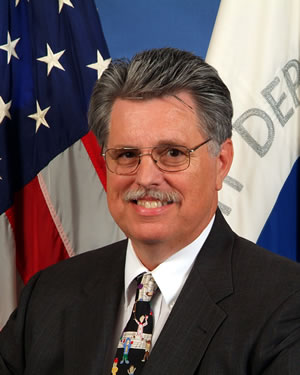Joseph H. Boardman facts for kids
Quick facts for kids
Joseph H. Boardman
|
|
|---|---|
 |
|
| President and CEO of Amtrak | |
| In office November 25, 2008 – September 1, 2016 |
|
| Preceded by | Alexander Kummant |
| Succeeded by | Charles "Wick" Moorman |
| 11th Administrator of the Federal Railroad Administration | |
| In office April 28, 2005 – November 25, 2008 |
|
| President | George W. Bush |
| Preceded by | Allan Rutter |
| Succeeded by | Joseph C. Szabo |
| Commissioner of the New York State Department of Transportation | |
| In office 1997–2005 |
|
| Governor | George Pataki |
| Preceded by | John Daly |
| Succeeded by | Thomas J. Madison, Jr. |
| Personal details | |
| Born | December 23, 1948 Taberg, New York, U.S. |
| Died | March 7, 2019 (aged 70) Pasco County, Florida, U.S. |
| Political party | Republican |
| Spouse | Joanne |
| Children | 3 |
| Education | Cornell University (BS) Binghamton University (MS) |
| Profession | Transportation professional |
Joseph Houston Boardman (December 23, 1948 – March 7, 2019) was an important American leader in transportation. He was the President and CEO of Amtrak, a major passenger train company, from 2008 to 2016. Before that, he led the United States Federal Railroad Administration, which oversees train safety and rules. Boardman also served for a long time as the Commissioner of the New York State Department of Transportation (NYSDOT). He was recognized as "Railroader of the Year" by Railway Age magazine in 2014.
Contents
Early Life and Military Service
Joseph Boardman grew up on a dairy farm in Oneida County, New York. He was one of eight children. In 1966, he joined the United States Air Force and served in South Vietnam from 1968 to 1969. After his military service, he went to college. He earned a bachelor's degree from Cornell University in 1974. Later, he received a master's degree in Management Science from Binghamton University in 1983.
Career in Transportation
Starting in Local Transit
Boardman began his career by managing public transportation for cities in Upstate New York, like Rome and Utica. In 1981, he became the commissioner for public transportation in Broome County, New York. This role meant he was in charge of local bus and transit services. In 1988, he started his own company, Progressive Transportation Services.
Leading New York's Transportation
In 1997, New York Governor George Pataki chose Boardman to lead the New York State Department of Transportation (NYSDOT). He held this job for eight years, becoming the longest-serving commissioner in NYSDOT history. During this time, he also helped lead a national group called the American Association of State Highway and Transportation Officials.
Overseeing Federal Railroads
In 2005, President George W. Bush nominated Boardman to be the Administrator of the United States Federal Railroad Administration (FRA). The FRA is a government agency that makes sure trains are safe. Boardman was confirmed for this role in April 2005.
As the 11th Federal Railroad Administrator, he managed safety programs and rules for railroads. He also helped create national policies for both freight (cargo) and passenger trains. His work focused on improving railroad safety through research and development.
Leading Amtrak: A New Era
In November 2008, Joseph Boardman was chosen to be the President and CEO of Amtrak. Amtrak is the national passenger rail company in the United States. He was the second-longest serving head of Amtrak.
Modernizing Amtrak's Fleet
Under Boardman's leadership, Amtrak started to update its trains. Using money from the American Recovery and Reinvestment Act of 2009, Amtrak was able to fix up over 90 old railcars. These cars were put back into service, which helped Amtrak carry more passengers.
Amtrak also ordered many new trains. This included 130 new bi-level cars and 35 new diesel locomotives for regional routes. They also planned to get about 28 new high-speed Acela Express trains for the busy Northeast Corridor. New electric locomotives (ACS-64) and Viewliner II cars for long-distance trains were also ordered. These new trains helped Amtrak carry record numbers of passengers.
Improving Passenger Experience
During his time at Amtrak, the company made big improvements. They started using e-ticketing and allowed electronic payments for food on trains. Wi-Fi was also added to most trains, making travel more convenient. Amtrak also worked on reducing its debt and improving its tracks and stations. By 2014, Amtrak was covering 93% of its costs, a new high for the company.
In December 2015, Boardman announced he would leave Amtrak in September 2016. Charles "Wick" Moorman took over as CEO. Amtrak later honored Boardman by naming locomotive #42 after him.
Personal Life
Joseph Boardman was married to Joanne, and they had three children. He passed away on March 7, 2019, after having a stroke while on vacation in Florida.
Awards and Recognition
Railway Age magazine honored Joseph H. Boardman as its 51st "Railroader of the Year" in January 2014. This award recognized his important contributions to the railroad industry.
Today, AMTK P42DC locomotive #42 carries Boardman's name. This locomotive is painted to honor America's Veterans, connecting his military service with his railroad career.
See also
- List of railroad executives
 | DeHart Hubbard |
 | Wilma Rudolph |
 | Jesse Owens |
 | Jackie Joyner-Kersee |
 | Major Taylor |

